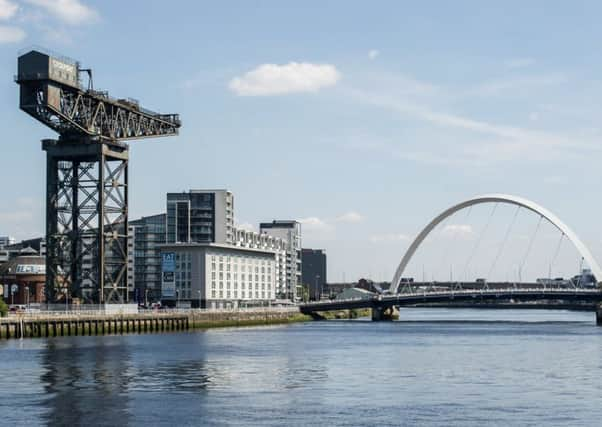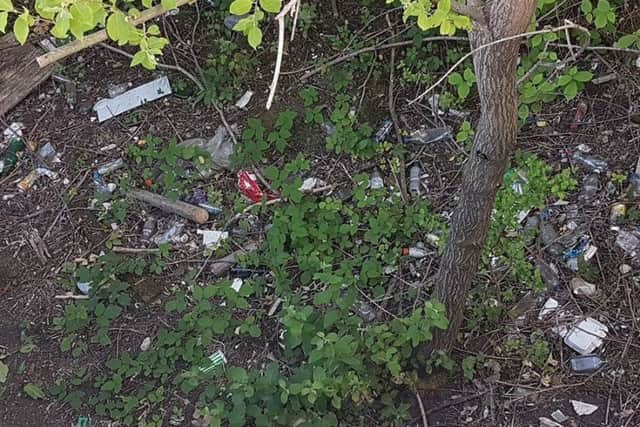River Clyde becomes 'choked' with plastic


The build up of litter on the river banks is to be tackled this weekend before it gets blown into the water.
The plastic rubbish poses a particular threat once it enters the waterway given it can break down into microplastics and mix with industrial contamination to become highly toxic to marine life.


Advertisement
Hide AdAdvertisement
Hide AdJack Barrie, of campaign group Glasgow Over Plastic, said the proximity of the water to the urban population and the number of events close to The Clyde , such as musical festival TRNSMT, which is staged at Glasgow Green, can create a significant build up of plastic litter on the river banks.
He said: “One of the issues is there is a dense population living down 8 to 10km of the Clyde.
“We also have huge events such as the TRANSMT festival right next to the Clyde and it is really hard to get into the bushes and hard to reach areas around the river to pick up all the litter.


“The council works very hard to clear the rubbish but inevitably there is still a leakage of plastic into the Clyde.
“The problem is the plastic breaks down into microplastics which can stick to contamination in the water. This can become one million times more toxic than the surrounding water.
Mr Barrie said the risk was the microplastics being washed down into the Clyde estuary, where they pose a threat to the life of spawning fish and young marine life.
He added: “The microplastics can be ingested, sit in the gut of the fish, choke them or leach toxins into the muscle tissue.
“It’s really, really important that we can stop the plastic getting into the water in the first place.
“It’s down to the public to take ownership of it.”
Advertisement
Hide AdAdvertisement
Hide AdIn reference to the city’s slogan, Mr Barrie added: “People make Glasgow and we need to get people cleaning their city and taking pride in it.”
He said more awareness was needed around throwaway culture and how remnants of rubbish left by humans can find its way into the food chain.
“We want to close that loop,” Mr Barrie said.
He added: “All the plastic that humanity has created since the 1950s still exists on the planet. Every bit of it.
“There has been a great accumulation over the past 30 to 40 year but this is also combined with a massive take up in plastic use.”
Mr Barrie, a circular economy consultant, said 80 per cent of marine litter comes from land, via aquatic pathways, and was usually blown into the by the wind.
Litter on land in Scotland is at its highest levels in a decade, with rubbish increasing by 6 per cent between 2016-2017.
He added: “The Scottish Government’s planned bottle return scheme is a great step forward. But much more needs to be done to prevent plastic leaking into our waterway.”
Around 70 people have volunteered for the clean up on Sunday, which will begin at Anderston Train Station with three separate target zones identified.
